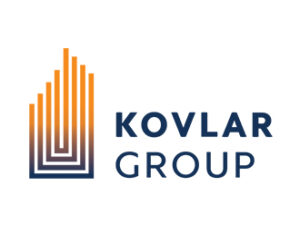
Poultry meat exports from Ukraine in January 2026 amounted to 38.1 thousand tons, which is 6.1% more than in December 2025, according to the Ukrainian Poultry Farmers Union.
The industry association specified that in monetary terms, exports for the specified period decreased by 2.1% to $85.4 million.
“The growth in physical export volumes against the backdrop of a decrease in total revenue is a consequence of a decline in the export value of products due to a fall in world prices for poultry meat,” the Poultry Farmers Union noted.
The main buyers of Ukrainian products in January were the Netherlands (21.9%), the United Kingdom (11.8%), the UAE (9%), and Slovakia (8.2%). The share of EU countries in total exports was 37.3% (13.8 thousand tons). At the same time, in monetary terms, the European market provided almost half of the foreign exchange earnings – 48.7%.
As reported, in 2025, Ukraine reduced the physical volume of poultry meat exports by 1.8% compared to 2024, to 458.1 thousand tons, but foreign exchange earnings from its sale increased by 13.7%, reaching $1.15 billion. The main markets were the EU countries (in particular, the Netherlands and Slovakia), Saudi Arabia, and the United Kingdom.

The Ukrainian company Kovlar Group (Kovlar Group, Ammokote TM) announced its participation in the first meeting of the Verkhovna Rada working group on the application and development of legislation in the field of construction products on the market, which took place on February 16 in the format of a video conference.
According to the parliament’s announcement, the working group operates under the Committee on State Administration, Local Self-Government, Regional Development, and Urban Planning and was created to develop solutions for the implementation of the new EU Regulation 2024/3110, which establishes uniform rules for the admission of construction materials to the market.
The first meeting discussed issues related to the official translation of the Regulation, analysis of its provisions, and preparation of a “road map” of changes for various types of construction products, as well as a review of approaches to conformity assessment and strengthening of product quality control in the domestic market.
The Verkhovna Rada Committee previously reported that the working group on construction products was headed by Committee Chair Olena Shulyak, and that members of parliament, government officials, and relevant experts were to be involved in the work.
Kovlar Group is a Ukrainian company that manufactures passive fire protection products; it works, in particular, with Ammokote brand products and is a leader in its market. Representatives of the company participate in the work of technical committees on standardization in the field of fire safety and protection of buildings and structures.
Kovlar Group LLC was founded in 2015 with a registered capital of UAH 1.2 million. Its founders and ultimate beneficiaries are Kostyantyn Kalafat (40%), Andriy Ozeychuk (35%), and Lyubov Vakhitova (25%). According to OpenDataBot, the company earned UAH 46,980,400 in revenue and UAH 6,109,800 in net profit in the first three quarters of 2025.

Ukrainian cheese makers continue to lose market share due to competition from imported products from the EU, despite the trend towards a reduction in external purchases, according to the industry analytical agency Infagro.
According to the report, producers are asking the state for support, in particular through the expansion of cashback programs for domestic cheeses and a review of the tax burden. However, experts assess the chances of significant changes in tax policy or the introduction of import barriers as low.
Analysts consider a more effective step to be the regulation of relations with retail chains to reduce significant retail markups that affect the final cost of products.
According to the agency, cheese imports are currently showing a downward trend in both monthly and annual terms, which is associated with rising prices in Europe and currency fluctuations. It is expected that the volume of foreign purchases will continue to decline.
“Despite the difficult market conditions, Ukrainian producers are in no hurry to lower their base prices. They are probably afraid that retail chains will not respond adequately to lower prices or that it will be difficult to return to previous price levels in the future. At the same time, buyers can already count on significant discounts when purchasing large quantities of products,” Infagro concluded.

EU enlargement is a geopolitical decision, and changes need to be made to the process of accepting new members, but EU member states are not yet ready to name a specific date for Ukraine’s accession, as Ukrainian President Volodymyr Zelensky insists, said EU High Representative for Foreign Affairs and Security Policy Kaja Kallas.
“We really need to work on this. But I think I have the feeling that the member states are not ready to name a specific date,” she said in response to questions at the Munich Security Conference on Sunday, according to a correspondent from the Interfax-Ukraine agency.
Kallas recalled that, in addition to Ukraine, Montenegro and Albania have also been on the list of candidates for accession for a long time.
“I think that the priority, the urgent need to move forward and show that Ukraine is part of Europe, exists,” the head of European diplomacy noted.
Latvian President Edgars Rinkēvičs also agreed with the EU’s unwillingness to set a date for Ukraine’s accession today.
“When I spoke with many heads of state and government of the European Union, I got the impression that at this stage, as we speak here in Munich in February, there is no readiness to set a date,” he said.
In his opinion, there is a desire to see Ukraine become part of the EU as soon as possible.
“The EU has always been very creative when it was really necessary. And we can find a formula that will probably suit us,” the Latvian president believes.
According to him, two other issues need to be resolved as part of this decision: the admission of candidate countries from the Western Balkans, which have long been promised this, and Moldova.
“When talking about Ukraine, don’t forget about Moldova. If Ukraine joins, we cannot exclude Moldova from this. So it’s not just about Ukraine anymore. We are talking about perhaps the largest unifying expansion, but probably under different rules,” Rinkēvičs explained.
In his opinion, it will then be necessary to return to a very serious discussion of what the entire structure of European Union decision-making will look like.
The Latvian president also stressed that the date of Ukraine’s possible accession to the EU, whether we like it or not, is now very much linked to a peace agreement with Russia — will there be a peace agreement or not?
“To be honest, I don’t see Russia being ready for an agreement. And if Russia doesn’t move, we won’t have an agreement,” he explained.
According to Rinkevics, Zelensky’s appeal to set a date for accession should be heard at a meeting of the European Council.

Ukrzaliznytsia (UZ) has sent its first container train along the Lviv–Fenishlitke (Hungary) route, according to the company’s press service.
According to the report, the project was implemented by a subsidiary of UZ Cargo Poland, a branch of the Lisky Transport Service Center, and a private Hungarian logistics terminal.
Sun Smart Logistics technologies and equipment and modernized platforms of the Lisky Transport Service Center were used for loading on 1520 mm gauge tracks. At the terminal in Fenishlitke, semi-trailers will be reloaded using R2L technology onto T3000 platforms for further travel on 1435 mm gauge tracks. Thanks to the modernized platforms and special technologies, the semi-trailers were loaded without the use of tractors and cranes.
“This trip confirms the efficiency and versatility of containerized transportation of semi-trailers of any type between Ukraine and European Union countries using 1520 and 1435 mm gauges,” Ukrzaliznytsia concluded.

According to Serbian Economist, real estate prices in Montenegro continue to grow at record rates, while residents’ salaries remain significantly below the European average, and rent is becoming less affordable, local analysts note. The cost per square meter of housing in the country is already higher than in some EU countries. According to data from the Statistical Office of Montenegro (Monstat), the average price per square meter of an apartment in new buildings in the third quarter of 2025 was €2,228, in Podgorica – €2,153, in the coastal region – €2,458, and in the northern region – €1,578. Monstat specifies that the indicator is calculated based on primary housing sales transactions.
As reported by local media, real estate agent Haris Osmanagic previously assessed the Podgorica market as overheated and said that prices in the capital had “almost doubled” in a short period of time, with new buildings in some areas being offered at €2,800-3,500 per square meter.
The price increase has also affected the rental market: according to Osmanagic’s estimates, the average cost of a long-term rental in Podgorica is in the range of €550-700 per month, two-room apartments – €800-1,000, three-room apartments – €1,200-2,000.
In the European Union as a whole, housing prices in the third quarter of 2025 rose by 5.5% year-on-year, according to Eurostat data.